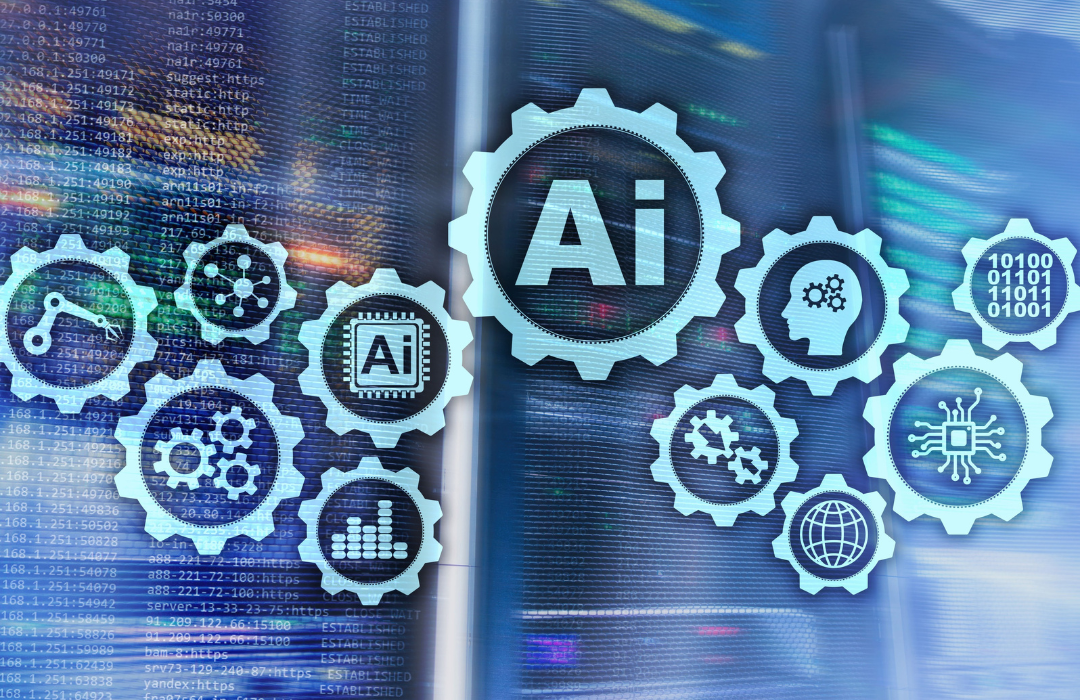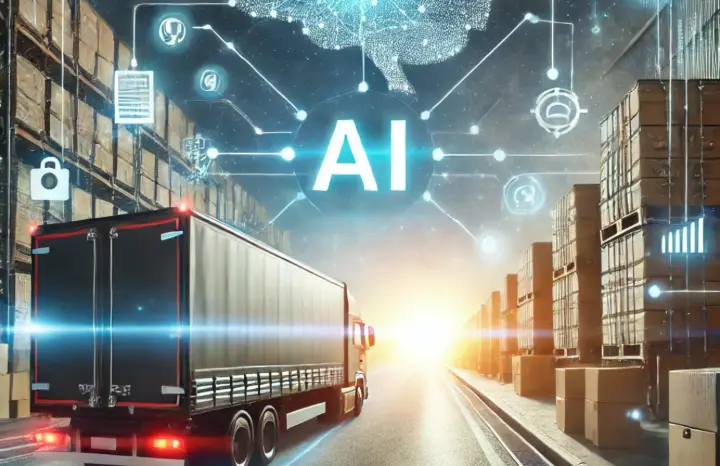The Future of ERP: How AI and Machine Learning Will Revolutionize Odoo Implementations
The digital revolution has transformed how businesses operate, and at the forefront of this change are technologies like Artificial Intelligence (AI) and Machine Learning (ML). These advanced tools are no longer just buzzwords but pivotal drivers of innovation across industries. In the realm of Enterprise Resource Planning (ERP), systems like Odoo are undergoing a remarkable evolution. By integrating AI and ML capabilities, Odoo ERP is poised to redefine operational efficiency, decision-making, and adaptability. This blog explores the profound impact of AI and ML on Odoo implementations and their transformative potential for businesses.
The Evolving Landscape of ERP Systems
Traditionally, ERP systems have served as central repositories for managing business processes, providing unified platforms for data and operations. While they have been instrumental in breaking down silos and enhancing efficiency, their capabilities were often limited to static reporting and basic automation. However, the demands of modern businesses have outgrown these traditional features. Real-time decision-making, predictive insights, and intelligent automation are now necessities.
The integration of AI and ML addresses these evolving needs. By equipping ERP systems with the ability to learn from data and make intelligent predictions, businesses can unlock unprecedented levels of efficiency and innovation. Odoo ERP, known for its modular design and flexibility, stands out as a platform ready to embrace this transformation.
How AI and Machine Learning Complement Odoo ERP
AI and ML elevate Odoo ERP to a new level by integrating advanced intelligence into its open-source, modular architecture. This fusion allows the system to evolve dynamically with real-time business conditions, setting it apart from traditional ERP systems. Unlike conventional platforms that depend on manual inputs and predefined workflows, AI/ML-powered Odoo ERP harnesses the power of data to deliver transformative capabilities.
The integration provides businesses with the ability to:
- Analyze vast datasets to derive actionable insights that drive smarter decisions, such as identifying emerging market trends, detecting inefficiencies in workflows, or predicting customer behaviors. This process enables businesses to stay proactive, adapt to changes swiftly, and make evidence-based decisions that foster growth and innovation.
- Automate repetitive tasks with intelligent systems that continuously refine their processes through learning and adaptation. For instance, an AI-powered system can not only process invoices or manage payroll but also identify inefficiencies in these workflows over time and suggest optimized procedures. This continuous learning capability ensures that as the system handles more data, it becomes increasingly effective at reducing errors, improving speed, and maximizing productivity. This self-improving nature of automation transforms repetitive tasks from a static process into a dynamic tool for efficiency.
- Predict market trends, inventory needs, and operational inefficiencies by identifying patterns and making data-driven recommendations. This involves leveraging historical data to anticipate shifts in customer demand, seasonal variations, and potential supply chain disruptions. With AI and ML, businesses can move from reactive problem-solving to proactive strategy, ensuring that they are always a step ahead. For example, retailers can forecast product popularity during promotional events, while manufacturers can predict machine downtimes, enabling preemptive maintenance and avoiding costly interruptions.

For instance, an AI-enhanced Odoo ERP can anticipate inventory shortages by analyzing seasonal sales trends, allowing businesses to adjust their supply chains proactively. Additionally, ML-driven tools can detect bottlenecks in manufacturing processes and suggest real-time adjustments, ensuring smoother operations and reduced waste.
Transformative Features of AI/ML in Odoo ERP
Smart Process Automation
AI and ML bring unprecedented levels of automation to Odoo ERP. Tasks such as invoice processing, payroll management, and order tracking can be fully automated, reducing human intervention and minimizing errors. These smart systems not only handle repetitive tasks but also learn from past data to improve efficiency over time.
Predictive Insights
With AI/ML integration, Odoo ERP becomes a powerful tool for predictive analytics. Businesses can forecast sales trends, anticipate inventory needs, and even predict maintenance requirements for equipment. These insights allow companies to make proactive decisions, reducing downtime and optimizing resource allocation.
Intelligent User Interfaces
AI-powered interfaces, such as chatbots and personalized dashboards, enhance user experience by offering tailored recommendations and real-time assistance. For instance, employees using Odoo ERP can receive automatic suggestions for improving workflows or accessing specific data points relevant to their tasks.
Industry Applications and Use Cases
The integration of AI and ML into Odoo ERP spans across industries, offering transformative, sector-specific benefits that address both operational and strategic challenges. By leveraging these advanced technologies, businesses can tailor their solutions to meet unique industry demands, resulting in optimized workflows, enhanced customer experiences, and significant cost savings. Each industry unlocks unique advantages through the power of AI and ML integration, making Odoo ERP a pivotal tool in achieving efficiency and innovation.
Retail: The retail sector can leverage AI and ML within Odoo ERP to offer highly personalized shopping experiences. By analyzing customer behavior and purchase history, businesses can recommend tailored products and promotions, boosting customer satisfaction and loyalty. Additionally, AI enhances inventory management by predicting demand trends, preventing overstocking or stockouts, and ensuring optimal stock levels. Targeted marketing campaigns, informed by ML-driven insights, enable retailers to reach the right audience at the right time, maximizing campaign effectiveness and driving sales.
Manufacturing: In the manufacturing sector, AI and ML transform operations by introducing predictive maintenance for machinery, significantly reducing unplanned downtimes. By analyzing data from IoT sensors, these technologies can forecast potential equipment failures and schedule maintenance proactively. Real-time quality control ensures that production defects are detected and resolved immediately, maintaining high standards and reducing waste. Additionally, AI-driven production planning optimizes resource allocation, aligning schedules with demand forecasts to achieve peak operational efficiency.
Healthcare: AI and ML revolutionize the healthcare industry by automating critical processes and ensuring higher efficiency. Patient management systems enhanced with AI can streamline scheduling, provide faster access to medical records, and offer predictive analytics to improve treatment outcomes. Compliance monitoring becomes more robust with AI-powered tools that ensure adherence to regulations like HIPAA by flagging potential issues before they escalate. Billing processes are also optimized, reducing errors and speeding up claims processing, ultimately improving patient satisfaction and operational efficiency for healthcare providers.
Logistics: The logistics industry benefits immensely from AI and ML integrated into Odoo ERP. Route optimization becomes smarter and more dynamic, using real-time data to minimize fuel consumption and reduce delivery times. Dynamic fleet management ensures efficient vehicle allocation and scheduling, helping logistics companies adapt quickly to changing demands. Additionally, AI enhances supply chain visibility by providing predictive insights into potential disruptions, enabling businesses to mitigate risks, improve delivery accuracy, and maintain customer satisfaction.

These use cases highlight the versatility of Odoo ERP when integrated with AI and ML, enabling businesses to address industry-specific challenges effectively.
Challenges and Solutions for AI/ML Integration in Odoo
While the benefits of AI and ML in ERP are clear, implementing these technologies comes with its challenges. Data preparation is one of the most critical aspects, as AI/ML models require clean, structured data to deliver accurate results. Additionally, businesses may face resistance from employees who are unfamiliar with these technologies.
To overcome these hurdles, companies can take the following steps:
- Start small by implementing modular AI/ML features and scaling gradually.
- Invest in employee training programs to ensure smooth adoption.
- Partner with experienced providers like TDS, who offer tailored solutions and expert guidance for Odoo ERP implementations.
The integration of AI and Machine Learning into Odoo ERP represents a significant leap forward in the capabilities of enterprise systems. From intelligent automation to predictive analytics, these technologies are set to revolutionize how businesses operate and compete in an ever-changing landscape. By embracing AI/ML-powered Odoo ERP solutions, companies can future-proof their operations and stay ahead in a competitive market.
Ready to explore the transformative potential of AI and ML in Odoo ERP? Contact TDS today to begin your journey toward smarter, more efficient business operations.
